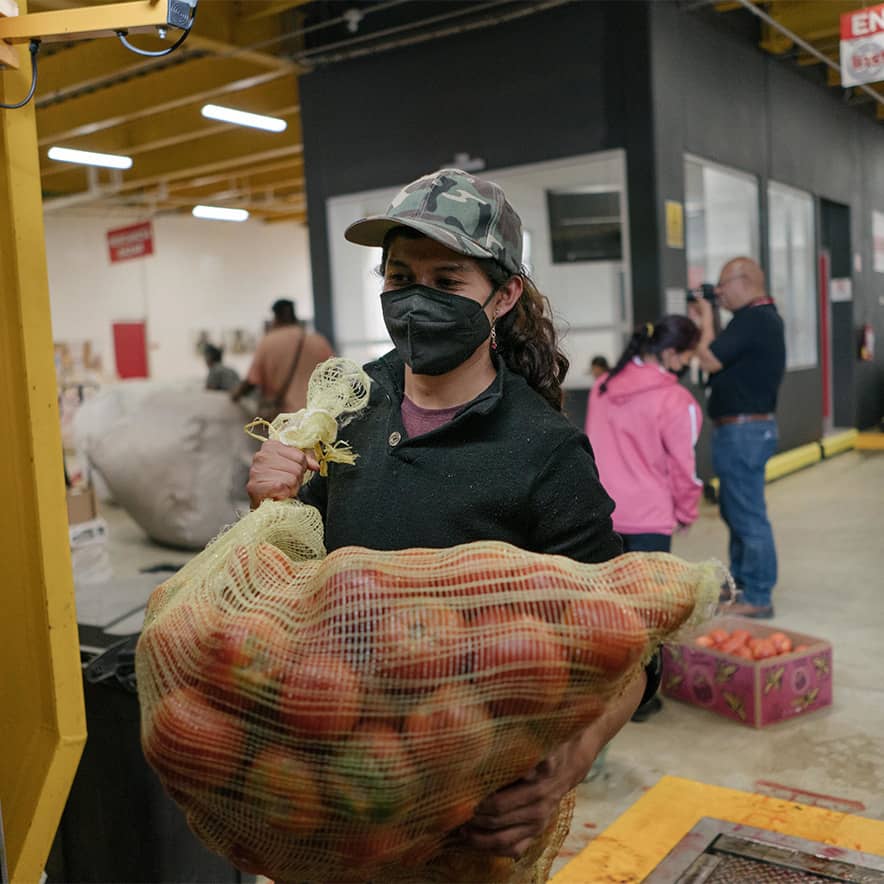GFN and Harvard Partner to Improve Global Food Donation Policies

In 2019, The Global FoodBanking Network (GFN) and the Harvard Law School Food Law and Policy Clinic (FLPC) partnered to create The Global Food Donation Policy Atlas, the first collaborative research project to examine the state of worldwide food donation laws and policies. The rationale for this project was simple: food banks offer a unique solution to the double problem of food loss and waste and hunger by directing surplus food to people who need it most; however, in nearly every country where GFN members operate, vague or nonexistent food donation laws and policies hinder food banks’ efforts.
“One of the challenges is confusion over the laws that regulate food and their application to food donation,” said Emily Broad Leib, director and founder of FLPC. “Often, food donation is not even mentioned in laws, so businesses and food banks have a lot of questions as they try to figure out what is allowed when they have surplus food that could be donated.” The product of GFN and FLPC’s partnership, The Global Food Donation Policy Atlas, hopes to change this.
The Atlas examines food donation laws in over 20 countries, providing country-specific policy recommendations for strengthening food recovery efforts. It points to several policy areas that could support national food loss and waste reduction, including:
- Strengthened tax incentives and reduced barriers to food donation
- Date labeling that clearly distinguishes between quality and safety
- Liability protection for food donors and food recovery organizations
- Standards for food safety specific to food donation
- Food waste bans or requirements to donate surplus food
- Government grants and incentives to support food recovery efforts
Because the policy landscape can vary significantly between and even within countries, GFN and FLPC consult with many stakeholders. “We cast a wide net and get feedback from a variety of partners in different sectors to really figure out what meaningful change would look like in each country,” said Halley Aldeen, GFN’s director of research. The Atlas team works with member food banks, who provide critical in-country perspective and connections to government officials, food producers and manufacturers, and local social service organizations.
Based on Atlas research, the FLPC team is working with GFN member food banks to drive food donation policy change at the national level. Effecting policy change can be a slow process, but a few countries are already making strides to improve food donation efforts. For example, GFN member food banks in India, including Feeding India by Zomato, No Food Waste, and the India FoodBanking Network, are working with the advocacy group Confederation of Indian Industry and over 60 stakeholders to identify major priorities within the FLPC’s recommendations. In the coming months, a proposal for new date labeling and liability protection regulations should be presented to the government’s Food Safety and Standards Authority.
New Atlas research on food donation policy in Kenya, Australia, and China is expected to be released in the coming months. Not only does this help food recovery organizations in these countries to better understand the national policy landscape, but it presents an opportunity for them to effect policy change in partnership with other stakeholders. GFN and FLPC hope that by reducing barriers to food donation through better policies, food banks around the world can connect even more people facing hunger to safe surplus food.